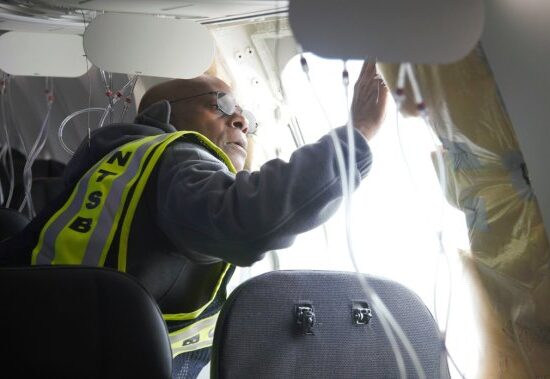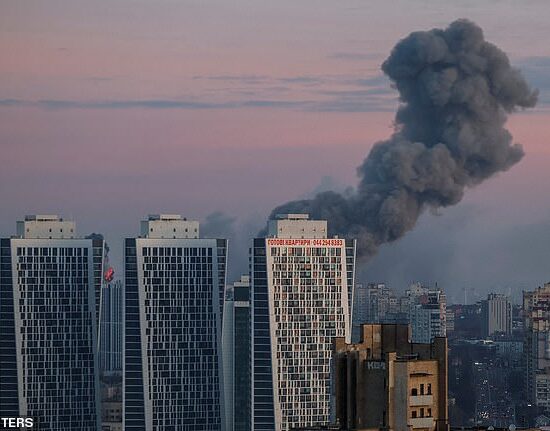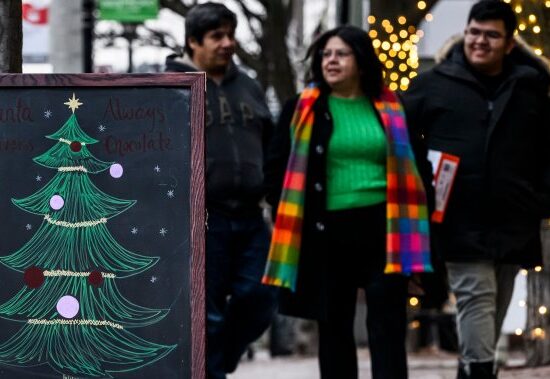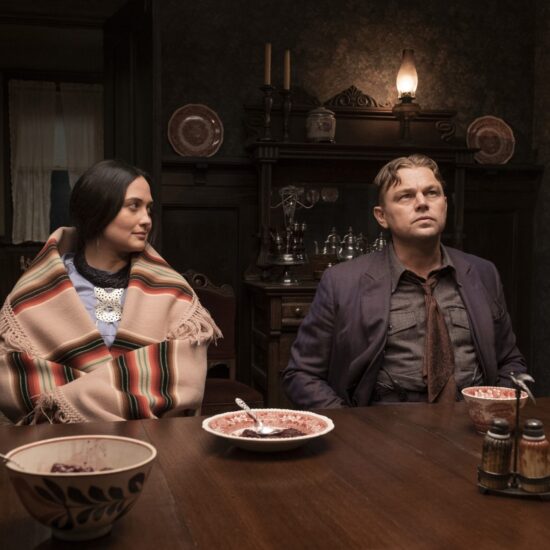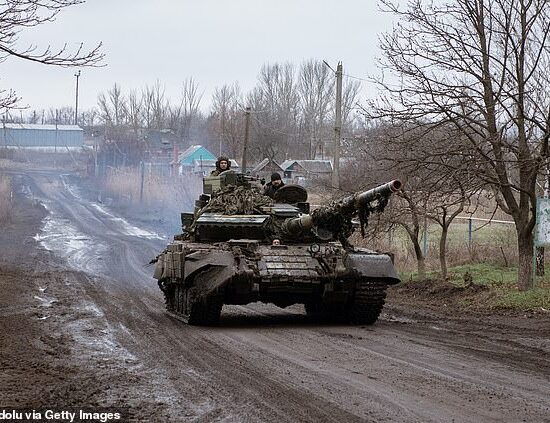Albanese says private investment in renewables key to resolving energy crisis
The PM is making the rounds this morning, appearing on Sunrise and repeating his line that almost a decade of “delay and denial” under the former Coalition government led to the current energy crisis (I feel like this will be a recurring theme today.)
People want an end to the nonsense that’s gone on for the last decade.
You can’t fix 10 years of inaction in just 10 days but we are taking immediate action through AEMO to make sure that the lights stay on. At the same time, we’re making sure that we create the investment environment to make sure we get it right.
We need new investment in the system, and the cheapest form of new investment is clean energy.
Once you make that outlay, then energy becomes cheaper in the future and then you become so competitive. So if we get this right, this can be an opportunity to drive new jobs, new industries.
SA Premier Peter Malinauskas jokes he’s “proud” to be on the new list of Russian sanctions against Australians, but that Russia wasn’t exactly on his “to-do list” anyway pic.twitter.com/2OjUGZlhO0
— Josh Butler (@JoshButler) June 16, 2022
McGowan calls for national gas reserve
West Australian premier Mark McGowan said it was “very strange” that some parts of the nation are lacking in gas supply, and called for the implementation of a national gas reserve.
Speaking on RN Breakfast, McGowan referred to WA’s decision in 2006 to implement a 15% gas reservation policy, which has shielded the state from the energy crisis.
The gas is actually the property of the people of the state, whichever state that is, and there should have always been enough for the state and the country in question. It just seems to me to be very strange that there’s no gas for local people yet.
Coal-fired power generation is very old technology and very difficult for coal plants to cope with renewables coming onto the grid, basically, new renewables every minute
So essentially, we’ve given a timeframe to close down the coal fired power stations because they will no longer be required by late 2029.
Albanese says productivity key to boosting profits
And a final question to the PM was on the Fair Work Commission’s decision earlier this week to raise the minimum wage.
Albanese was asked if he was concerned at a potential inflationary spiral, which the PM dismissed, saying the commission considered these issues at length before coming to their decision:
You look at what the Fair Work Commission head Ian Ross said in his statement – that this wouldn’t be inflationary, this was in the context of a relatively low unemployment rate which is there.
And, they made the decision that given the cost-of-living pressures that people are under, if you didn’t have at least a 5.1% increase in at the minimum wage what you would be saying is that people who are the lowest paid workers in this country would get a real wage cut, and they couldn’t afford to do that, so I welcome the decision by the Fair Work Commission.
It was based upon their assessments about the economy and the impact on it as well. What we need to do in the medium and longer term, and I will be talking with premiers and chief ministers about this today, is that if you want to increase profits and increase wages, the key to that is boosting productivity and we need a productivity agenda. And, I am pleased that the states and territories want to be a part of that as well.
Albanese: there are real pressures in the health system
Albanese is next asked about health funding in the context of the national cabinet meeting due today.
Albanese was asked what his government would be doing in the short term, denying that any of his election pledges were only long-term solutions:
There are real pressures in the health system and we understand that that is the case. But, when you look at those pressures, it isn’t just a matter of hospital funding, it is the way the hospital system is operating in general.
That’s why we announced during the election campaign our urgent care clinics. That’s why we announced our Medicare-strengthening GP payments as well for every GP clinic in the country. That’s why we announced $750m to our Medicare program.
We will have discussions today about the pressures that the system is under. We note that the Covid payments in terms of the hospital system due to end at the end of September, but was something that was put in place by the former government and we will have constructive discussions about better this morning with state premiers and territory leaders.
Albanese says 10 years of ‘denial and delays’ led to energy crisis
Next up is the prime minister himself, who was on ABC News Breakfast, who was asked about the government’s short-term strategy to deal with the energy crisis on the east coast.
Albanese, though, said there was little reform his government could do in the immediate term, adding that it would be “dishonest” to try and say he could fix the transmission grid overnight:
AEMO has made clear it will stay in place while it is deemed to be necessary. What I can’t do is stand here in my office in Parliament House and create a new power plan or fix the transmission grid. It is just dishonest.
The problem is, we have had 10 years of denial and delays. We haven’t had the investment, we haven’t had the grid effects, and as a result we have problems with the energy system. We had 22 policies announced and not landed. It is just dishonest. If I stood here and said that I could create a new power grid in a day – you simply can’t do that. What we simply needed to do was to have a short-term measure in place, but also to make sure that we get that investment, so that in the future we don’t have these problems.
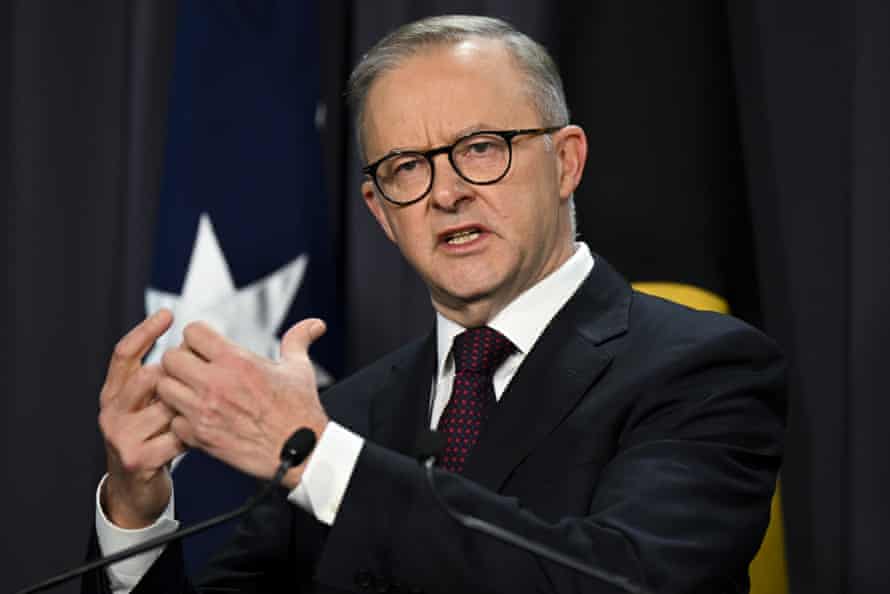
Richard Marles says Australia should be ‘partner of choice’ for the Pacific
Deputy prime minister Richard Marles is first off the bench this morning, and said the government is focusing on building a more robust relationship with Pacific nations, while adding that “the door is open” to more discussions with China.
Marles was on Sunrise this morning, and said Australia wanted to be the “partner of choice” for the Pacific, adding that his meeting with Chinese counterpart General Wei Fenghe was “purposeful”.
I think the important point is that both of us went into that meeting at the beginning with a sense of wanting to take the bilateral relationship to a better place, and that is also how the meeting ended.
It’s only a first step. There is a long way to go, but I think the door is open to more dialogue with China.
It is important that around defence issues you do have a dialogue, so there is no issue of miscalculation, and so we will do that in a much more professional way than what we saw with the Morrison government.
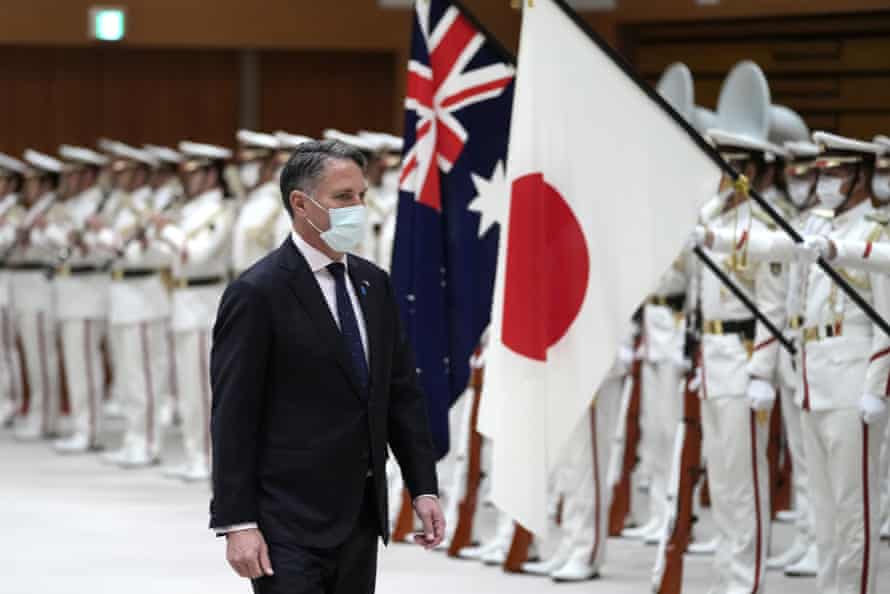
Russia sanctions 121 more Australians
Here is the full AAP report on the Russian sanctions on Australians:
The Russian government says it is sanctioning a further 121 Australian citizens including business people, army officials and journalists.
Russia’s foreign ministry on Thursday night said the move to bar entry to the Australians was in response to Australian government sanctions against Russian individuals, put in place following the Russian invasion of Ukraine on 24 February.
It accused those on the list of promoting a “Russophobic agenda” in Australia.
Names include ABC chair Ita Buttrose, News Corp co-chair Lachlan Murdoch, South Australian premier Peter Malinauskas and Defence Force chief General Angus Campbell alongside various business people, newspaper editors, academics and thinktank heads.
Media personalities Stan Grant, Andrew Bolt and Liz Hayes were included as well as Atlassian co-founders Mike Cannon-Brookes and Scott Farquhar, mining magnates Andrew “Twiggy” Forrest and Gina Rinehart as well as Nine Entertainment Group chair Peter Costello and Meriton apartment developer Harry Triguboff.
Those mentioned on the list are barred from entering Russia indefinitely, the foreign ministry said.
It added that it could expand the blacklist as the Australian government “does not seem inclined to abandon its anti-Russia policy line and continues to produce new sanctions”.
Russia describes the incursion of its forces into Ukraine as a “special military operation” to disarm and “denazify” its neighbour.
Ukraine and its allies have rejected this as nonsense.
Australia in May sanctioned more than 70 Russian politicians and more than 30 local officials in the eastern Ukrainian separatist regions of Donetsk and Luhansk.
Good morning
Good morning and happy Friday, Mostafa Rachwani with you this morning, taking you through the day’s news.
We begin with a report that the Russian government says it is sanctioning a further 121 Australian citizens including business people, army officials and journalists. Russia’s foreign ministry on Thursday night said the move to bar entry to the Australians was in response to Australian government sanctions against Russian individuals, put in place following the Russian invasion of Ukraine on 24 February.
In Canberra, national cabinet is reconvening with a new prime minister today, with expectations premiers will ask the federal government for more consistent health funding and improvements to primary care.
In NSW, energy minister Matt Kean last night took the extraordinary step of taking emergency powers that force coal companies to guarantee fuel supplies to the local electricity market, as stockpiles run low. It was another night where blackouts were narrowly avoided, and the energy crisis continues.
There is still much going on, so let’s dive in.









